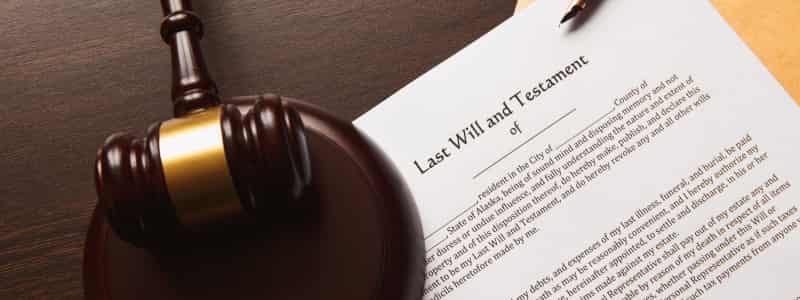Writing a will and knowing how often to update your will can be a confronting procedure as it’s a difficult topic to talk about. It regards all your assets and involves your family. We understand how difficult it can be which is why we have created a comprehensive guide on what to expect.
What is it and why is writing a will so important?
A will is a legal document which clearly sets out your financial and personal wishes after you pass. It also states how you’d like your assets distributed. Having a clear and legally valid will is extremely important for the protection of your wishes after you pass.
If you pass without a will in place, no-one knows who you wanted as your beneficiaries, or who you wanted as your executor. Furthermore, your assets will be distributed as per a set formula with certain relatives receiving a percentage of your assets. This may not be something you wished thus the importance of a will.
How do I write a will?
As a will is a legal document, it is not advised to just write up your own without legal advice. It’s a good idea to speak to an estate lawyer to make sure that it’s legally valid and will execute your wishes.
You can find will templates online which you can fill in with information and then speak to a lawyer. You can also start your will online with NSW Trustee and Guardian where you can pre-fill the information you know prior to your appointment with them.
When should I start writing a will?
An average of 45% of Australians do not have a current will. It’s important to keep in mind that even though you may not own property, the things you do own, such as furniture and jewellery, are still important. You should start writing your will at the age of 18.
How often should you update your will?
There is no set time frame as to how often you should update your will. However, your will is an indication of what you want to happen with your assets at that moment. Therefore, it’s advised that you update your will whilst your circumstances change. There are many different circumstances that may require you to update your will and some of these circumstances include;
If you get married or divorced
Many Australians are unaware that their Will becomes invalid when they marry. If you don’t update your will upon marriage, a large part of your estate may be awarded to your spouse. Now, this may be what you want, however, explicitly stating it in your will, among awarding part of your estate to others is important in ensuring your wishes are met.
Divorce directly affects your will, however, it is different in every state and territory. In some states, divorce will automatically make your will invalid. However, in other jurisdictions, it will only revoke your former partner as your executor and/or any gift let to them.
If you have children
Having a baby is a joyous moment and we understand, you don’t want to ruin such a beautiful moment by worrying about your will. However, if you want to protect your baby’s future, updating your will after a baby is important.
Sit down with your significant other and discuss this together. In the case where you both were to pass, you’ll need to assign a guardian for your children, as well as distribute your assets. Your will and your wishes for your children should be a joint agreement with your partner. Also, make sure the people in your lives are aware of your wishes after you pass. The last thing you want is for an argument to happen over the custody of your children at an already difficult time.
It’s recommended that you update your will after every child to ensure everyone’s best interest is reflected in your will.
If you buy or sell property
Once you pass, it will be necessary to transfer your property to someone else. If you own the property on your own, you can assign the property to whomever you’d like in a valid will.
However, if you own the property in joint names and you do not have a valid will, the property may not be distributed the way you’d like it. Some laws state that upon passing, the property may go fully to the youngest joint tenant’s family.
If you are diagnosed with a terminal illness
Being diagnosed with a terminal illness can be a confronting time for a person and their family. However, updating your will when you are diagnosed is extremely important in securing your wishes. Without a will, your assets, including family heirlooms and antiques, may be distributed against your wishes.
The last thing you want after passing is to make an already difficult time in your family’s life even harder any by leaving a will, you make your wishes extremely clear making your family’s time of grieving easier.
Who can contest my will?
Despite your right to leave your assets to whoever you’d like, in some instances, friends or relatives who believe they have not been sufficiently provided for are entitled to contest your will.
‘Will contesting’ is governed by the Succession Act 2006 (NSW) and does not limit the people who can contest your will to your spouse or children. In fact, a de-facto partner, any other dependants or a former spouse also have the right to contest your will.







